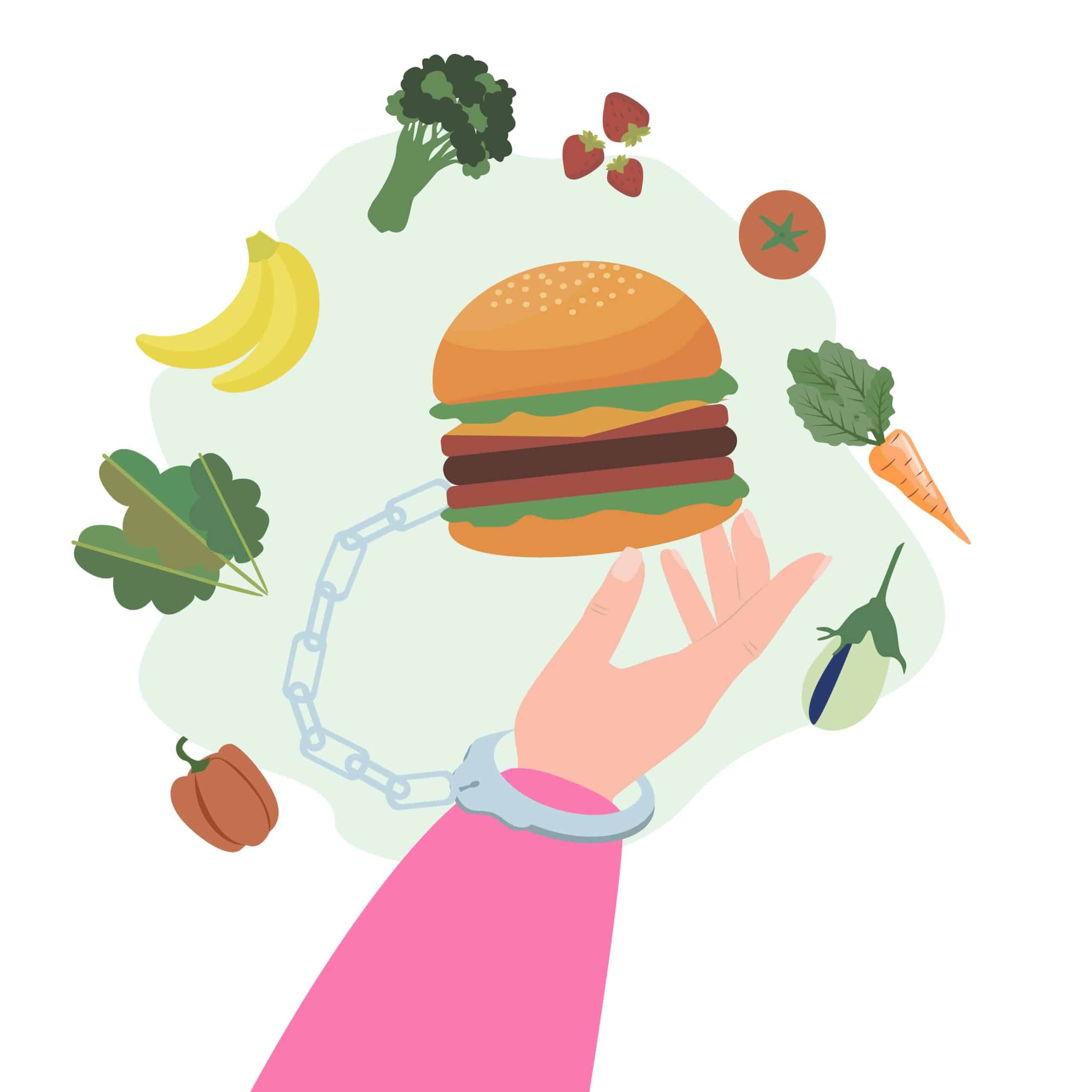Blog

Why You Won't Want to Start a Diet this January
Set Point Theory: Demystifying the need to diet in the New Year
Coming up to New Year’s Eve, do you find yourself resolving that next year is going to be the one where you finally reach your goal weight? Did you make the same resolution last year, only to have been unsuccessful?
You’re not alone! Research suggests that almost 50% of women set intentions related to weight loss each year.1
However, did you know that every person has a weight that we are genetically programmed to maintain, regardless of how much we try to fight it? This is known as our set point.
What is set point theory?
Set point theory states that every person has a natural weight range that is healthiest for their body. It’s similar to having a shoe size or a height that you’re genetically predisposed to. This is how we explain body diversity!
If weight is gained or lost beyond this set point range (whether intentional or not), alarm bells will ring, and your body’s survival mechanisms will be enacted in an effort to protect you.
Think about it like a thermostat that’s set to 20 degrees. If the temperature starts to increase, the air will switch on to bring it back down. If the temperature drops too much, the heat will kick in. Your body does the same!
If your weight drops below your set point range, ghrelin (the “hunger hormone”) will increase and leptin (the “fullness hormone”) will decrease, as will metabolism.2,3 If your weight increases above your set point range, the opposite will occur.
This mechanism is significantly more sensitive to weight loss than to weight gain.4 Consequently, it is much more common for set point to increase over time than it is to decrease.
How to know when you’re at your set point
Your set point is the weight range that your body will maintain when you’re not actively restricting your intake or over-exercising. When you first begin to eat intuitively, your weight might increase, decrease or stay the same. This depends on how far from your set point you are.
Over time, if you continue to tune into your hunger and fullness cues, exercise mindfully and release control over your eating, your weight will stabilise at your set point.
This natural weight range may be higher than you would like it to be, than what is recommended by some health professionals, or than what is deemed acceptable by society. But it is what is healthiest for your body.
This can be incredibly difficult to come to terms with, especially when you have spent your whole life trying to fight against it. It can be even harder to let go of the desire to lose weight or change your body. But you deserve to find peace with food, exercise and your body at whatever weight you are.
Weight loss as a New Year’s resolution
Although it has become almost an expectation in our society to take part in restriction after the indulgence of the holiday season, we want to encourage you to go against the grain this year and put your wellbeing first.
Since we know weight loss and dieting are unsustainable, by making them your resolution you’re essentially setting yourself up for failure. Why do that when you could start (and finish) your year with abundant feelings of success and self-love?!
If you’ve been berating yourself over your lack of willpower, it’s time to take a deep breath and release the guilt and blame.
This isn’t to say you shouldn’t set goals! Personal growth is an incredible ambition to have, and the New Year is the perfect time to reflect and consider what you want to achieve in the year ahead. However, instead of focusing on arbitrary numbers like calories and weight, try thinking about how you want to FEEL in 2021.
Some non-weight related New Year’s resolutions are:
- Cook one new recipe each week
- Start a daily meditation
- Explore a new hobby or skill
- Delete your dieting apps (looking at you, MyFitnessPal!)
- Begin volunteering for a cause you’re passionate about
- Read one book a month
- Commit to journalling daily
- Find a type of movement you love
- Detox your social media – replace accounts that trigger negativity with those that foster compassion and inspiration.
Whatever intention you decide to set, our team at Embody Health London wish you a New Year filled with fun, growth and empowerment.
If you’re thinking about taking steps to heal your relationship with food and your body in the New Year, we would be honoured to support you! Reach out to us at [email protected] to chat about how we can help guide you towards food freedom.
Karli Battaglia MDiet, APD
EHL Team x
References
- Oscarsson M, Carlbring P, Andersson G, Rozental A. A large-scale experiment on New Year’s resolutions: Approach-oriented goals are more successful than avoidance-oriented goals. PLOS ONE. 2020;15(12):e0234097.
- Soares M, Cummings N, Ping-Delfos W. Energy metabolism and the metabolic syndrome: Does a lower basal metabolic rate signal recovery following weight loss?. Diabetes & Metabolic Syndrome: Clinical Research & Reviews. 2011;5(2):98-101.
- Lopes A, Fayh A, Souza Campos L, Teixeira B, Kreismann Carteri R, Ribeiro J et al. The effects of diet- and diet plus exercise-induced weight loss on basal metabolic rate and acylated ghrelin in grade 1 obese subjects. Diabetes, Metabolic Syndrome and Obesity: Targets and Therapy. 2013;:469.
- Müller M, Bosy-Westphal A, Heymsfield S. Is there evidence for a set point that regulates human body weight?. F1000 Medicine Reports. 2010;2.














